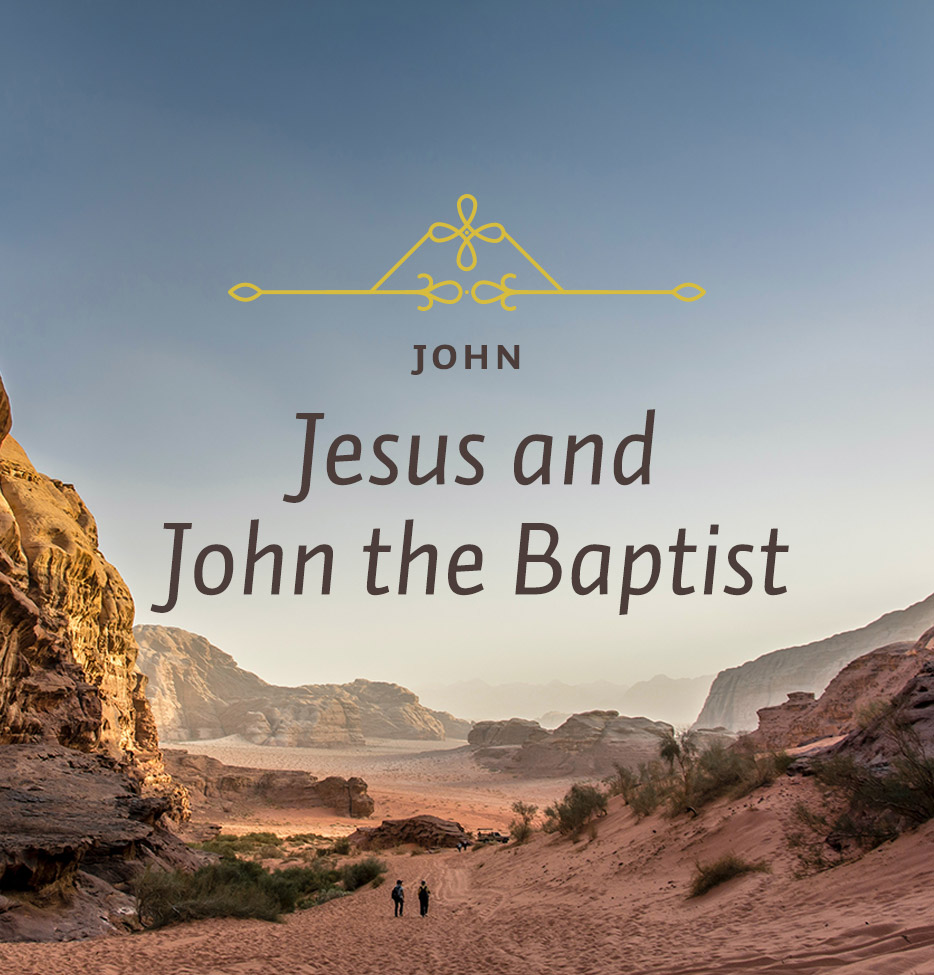In this series we are going to be studying the characters of John’s Gospel who had encounters with the Lord Jesus Christ. Some of the best-known characters in the biblical story are found in this Gospel, and others that are found in the other Gospels as well receive fuller treatment in John.
We begin with John the Baptist and what strikes us immediately as we turn to his story at the very beginning of this Gospel is how extensive it is. It’s not what we would expect, really. Here is the gospel about Jesus Christ, the Son of God. He’s the one introduced to us in the opening verses, and no sooner is the Lord Jesus Christ introduced than John begins to talk about John the Baptist. We find him in verses 6 to 9, mentioned again in verse 15, and then beginning with verse 19, much of the rest of the first chapter deals with John’s testimony and the result of it.
In addition, when we come to chapter 3, we find more extensive treatment of it beginning with verse 22. Then, in the fifth chapter, when Jesus is talking about the witnesses that are given to him, he mentions John in verses 33 through 35. So, there really is an enormous amount of attention given to this man who was Christ’s forerunner.
Now that makes us ask why? The liberals, of course, have an answer for that. The answer comes from a little reference to the baptism of John that we find in the Book of Acts. In the eighteenth chapter of Acts, verse 24, there are some references to John the Baptist that carry on from the end of that chapter into the nineteenth chapter. It seems that at Ephesus there were people who knew only the baptism of John. They didn’t understand much about the coming of Christ. They didn’t know that John had been his forerunner and had pointed to him, and so, the kind of message that had been preached to these disciples was the message of repentance from sin in response to which, or as an evidence of which, they were baptized, and the baptism was called the baptism of John.
Now, the liberals loved to get hold of something like that. They built a whole theory out of that kind of a reference, and the theory goes like this. There was in the early church a cult of John the Baptist. He was considered by everybody to be a very important figure. And so when we find all this treatment of John the Baptist in John’s Gospel, what John is doing is putting John the Baptist down. He’s saying that John the Baptist is not that important because he’s not the light. Jesus Christ is the light.
That kind of a treatment by liberal theologians reminds me of the sort of thing that Rudolf Bultmann has done in his Theology of the New Testament. Bultmann believes that very little can be known about the historical Jesus. As a matter of fact, all that really can be known about the historical Jesus, according to Rudolf Bultmann, is the fact that he existed. There was a person like that, but that’s about all that he will say. So in his book Bultmann takes only thirty pages to discuss the teaching of Jesus Christ. And in most of those pages, he’s dismissing it. But then, he spends the next 150 pages to develop the theology of the Gnostic movement in the early church, about which, apart from Rudolf Bultmann, we know absolutely nothing. Now, that’s the kind of thing the liberals have done with John the Baptist.
I want to suggest that that is not at all the reason why John the Evangelist develops his testimony as extensively as he does in the opening chapters of his Gospel, and that by contrast the real reason is this: John the Baptist was a witness to Jesus Christ, and witnesses are necessary. What John the Evangelist is doing is unfolding this witness to say to us, as we come to the beginning of the Gospel, that we are to be witnesses, too.






